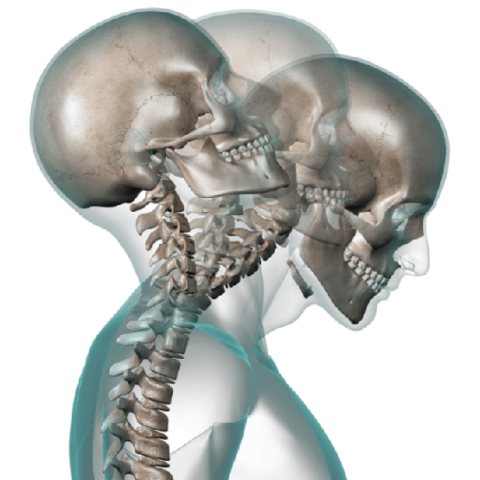What Is Whiplash?

If you’ve ever been in a car accident, especially one in which you were hit from behind when the vehicle you were in was at a stop, you may have suffered from the symptoms of whiplash. Whiplash is a very common car accident injury, involving damage to the soft tissues of the cervical spine. Even when impact occurs at low speeds, a rear-end collision can force the head sharply forward or backward, causing neck pain that may indicate whiplash. While whiplash happens most often in motor vehicle accidents, it can also be caused by a fall, an assault, or chronic neck strain.
What are the symptoms?
Symptoms of whiplash can occur immediately after the trauma, but the full onslaught of symptoms may not manifest for a few days—or even weeks—after the trauma occurred. Symptoms include neck pain, lumbar back pain, headaches, neck stiffness, muscle spasms, and dizziness.
How is whiplash diagnosed?
If you visit a doctor immediately after the trauma occurred, the doctor will most likely take x-rays of the neck and back to ensure that there are no fractures or more serious injuries. The doctor may also recommend a cervical collar for additional support. Because damage to soft tissue can’t be detected with basic x-rays, other methods of imaging, such as MRI or a CT scan, may be used to detect injury to the soft tissues.
What are the treatment options?
There is no standard treatment for whiplash since the symptoms can vary for each individual. This is why it’s important to see a healthcare professional immediately after an injury to the neck. He or she can determine your best treatment options. Luckily, whiplash can often be treated without surgery. Some possible treatments include the use of pain medications, anti-inflammatory drugs, or a cervical collar. Your doctor may also recommend heat and ice therapy, physical therapy, or injections.
Though whiplash may not seem as severe as other spine injuries, it is still important to seek medical treatment. To learn more about whiplash or to explore your treatment options, contact Dr. Perry at Spine Institute of Nevada. Visit one of our Las Vegas offices or call us today at 702-239-3787.
